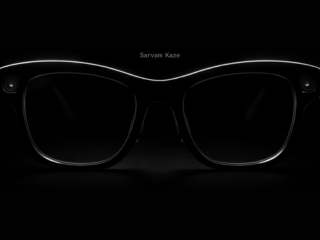- Home
- Laptops
- Laptops Reviews
- MSI GP62 7RD Leopard Pro Review
MSI GP62 7RD Leopard Pro Review

MSI recently refreshed its entire range of gaming laptops in India with CPUs from Intel’s 7th generation ‘Kaby Lake’ lineup. The company has also been proactive in offering Nvidia’s 10-series GPUs as soon as they’re available – we’ve already seen models with higher-end GPUs, but the mid-range GeForce GTX 1050 and 1050 Ti were only just announced at CES, so it’s impressive to see that MSI is selling them in the country already.
It’s also good to see that with every generation of new hardware, more and more performance can be extracted out of parts that don’t cost very much. The MSI GP62 7RD Leopard Pro, which we’re reviewing today, costs just a hair over Rs. 1 lakh, and its specs compare very favourably to those of laptops which cost quite a bit more.
If you don’t want to spend a huge amount on a gaming rig but still need something portable, this could be the sweet spot in terms of both pricing and physical size. Let's take a closer look.
![]()
MSI GP62 7RD Leopard Pro look and feel
The MSI GP62 7RD Leopard Pro is definitely nowhere near as slim as today’s mainstream laptops, let alone ultrabooks, but it isn’t impossible to carry around either. At 29mm thick and 2.4kg in weight, it’s definitely a compromise between power and portability. It didn’t fit into a laptop sleeve designed for 15-inch models, but had no trouble slipping into backpacks and sling bags.
The design is relatively slick, with a lot of clever lines and angles masking this laptop’s overall bulk and making it easier to hold and carry. though the matte black finish of the lid picked up smudges and fingerprints in no time. There are red accents on the front and rear, and a red MSI “G series” badge on the lid which we find a little garish.
The hinge is plastic the screen can tilt up to a little less than 180 degrees. However, there is a bit of wobble to it, even with light taps. The lid flexes a bit too easily for our liking, but the display isn’t affected. As far as build quality goes, the MSI GP62 7RD Leopard Pro is a little less sturdy than we would have liked.
With the lid open, you’ll see that there’s a lot of black plastic around the screen. The Leopard Pro is also wide enough to accommodate a nearly-full-sized keyboard with a number pad. It’s designed such that the keys don’t sit within a recessed tray; they’re right on the surface of the lower deck which makes it really easy to rest a palm there and use the lowest row without any interference. The keyboard is designed in conjunction with SteelSeries, but unlike MSI’s more expensive models, this one gets only simple white backlighting with three levels of brightness, and no configuration utility for macros.
![]()
Keyboard layout is decent, apart from a missing Windows key to the left of the spacebar, which we noted in our earlier review of the MSI GS63VR 6RF Stealth Pro. The arrow cluster is jammed between other keys and is difficult to locate quickly by touch. The trackpad is especially large, and has two independent buttons which we found to be comfortable enough.
You’ll find an Ethernet port, two standard USB 3.0 ports, one USB Type-C port which works at USB 3.0 speed, HDMI and Mini-DisplayPort video outputs, and individual 3.5mm mic and headphones sockets on the left. The MSI GP62 7RD Leopard Pro has a single USB 2.0 port and the DC power inlet on the right, along with an SD card reader and a DVD-RW drive. We would have liked some kind of cover or at least a plastic dummy to block off the SD card slot, which is fully exposed.
The speakers are on the front lip of the MSI GP62 7RD Leopard Pro, angled downwards so that sound can bounce off a flat surface. There are two small vents on the rear but only the left one expels hot air, and there are plenty of slits for air circulation on the bottom as well. You can see the RAM through these slits, but it looks like it would take 14 screws to take the bottom off, and one of them is covered by a warranty void seal. Considering the use of standard parts and the target audience here, we would have liked to have had easier access to at least the RAM, SSD and hard drive.
The Leopard Pro comes with only a 150W power brick, which itself is pretty large and heavy. MSI has tried to make it slim, but you should factor this weight in when deciding whether you want to carry a laptop like this around.
![]()
MSI GP62 7RD Leopard Pro specifications
Intel’s Core i7-7700HQ is one of the top models in the Kaby Lake lineup, with four cores running at up to 3.8GHz. There’s 16GB of RAM and a 128GB SSD as well as a 1TB mechanical hard drive for storage. The specs aren’t bad at all for an entry-level gaming laptop – we would have liked a larger SSD considering the size of today’s games, but it’s a minor compromise.
The MSI GP62 7RD Leopard Pro is our first encounter with Nvidia’s brand new GeForce GTX 1050 for laptops. The GP62 7RD variant has a vanilla GTX 1050 with 2GB of VRAM, but there’s also a slightly more expensive model which has 4GB of VRAM. Make sure you know which model you’re buying, because there’s no difference in their model names. MSI doesn’t sell other variants of this laptop in India.
The screen is a 15.6-inch 1920x1080-pixel panel with a matte finish and no touch capability. It’s sharp enough for everyday usage at regular viewing distance, but definitely doesn’t have the wow factor of high-DPI screens like today’s ultrabooks. You also get a Killer Gigabit Ethernet controller, Wi-Fi ac, Bluetooth 4.2, and an HD webcam. While we would have liked to have seen USB 3.1 Gen 2 (10Gbps) or even Thunderbolt 3, these aren’t huge losses considering the price MSI is asking for the GP62 7RD Leopard Pro.
As with previous MSI laptops we’ve tested, Windows 10 is infested with a large number of preloaded apps, many of which throw up popup messages at the most inconvenient times. In addition to Norton Online Backup, there are utilities for the Killer networking interface, Nahimic audio enhancement, Nvidia GeForce Experience, and also MSI’s own Dragon Centre. While many of these just keep asking for registration, Nahimic is the most intrusive. It shows an always-on overlay in games for positional audio cues, which cannot be moved or disabled easily.
![]()
MSI GP62 7RD Leopard Pro usage and performance
As stated earlier, it isn’t too difficult to move around with the GP62 7RD. Usage is relatively comfortable thanks to the generous wrist rests and overall lack of concern for miniaturisation. The system fans spin up a bit too often for our liking and the noise is quite loud – it isn’t such a problem when gaming with headphones, but it does get annoying when doing something as mundane as copying files from an external drive.
We found the screen on the MSI GP62 7RD Leopard Pro to be pleasant to work with, whether we were reading text, typing, or watching videos. It doesn’t make colours pop particularly well in videos or games, but its size and resolution are proportionate and especially appropriate for games. We’re particularly glad that MSI went with a non-glossy display, so we didn’t have to struggle to avoid reflections. The keyboard keys were a bit too wobbly and mushy for our liking. We also found that the left and centre of the keyboard got just a bit too hot for our liking when we were gaming.
General performance is excellent, thanks to the high-end CPU, PCIe SSD, and generous amount of RAM. The GP62 7RD boots quickly and has no trouble at all with slowdowns. We started off testing with a few general benchmarks. PCMark 8 gave us 4,025 in the Home test, 5,072 in the Creative test and 3,386 in the Work test, while Cinebench R15 scored 739 points and POVRay completed its run in 2 minutes, 44 seconds. In terms of subsystems, the fast SSD managed sequential read and write speeds of 515MBps and 443MBps respectively, while memory bandwidth came in at an impressive 24GBps.
As for graphics and gaming, we started with the industry standard 3DMark, and got scores of 1,732 in the DX12 Time Spy test, and 2,535 in Fire Strike Extreme. We ran the Unigine Valley simulation at 1920x1080 with 8xAA and got an average of 33.2fps. The Star Swarm stress test also gave us an average of 36.65fps.
For some reason, both Ashes of the Singularity and Deus Ex: Mankind Divided crashed on launch and refused to run. These are two of our most recent DX12 tests, so it was disappointing that we could not run them. We expect that this was down to software, but we were unable to fully reset the laptop and troubleshoot these games in our review period. Metro: Last Light Redux’s built-in benchmark gave us an average of 81.67fps at Medium settings with SSAA disabled.
Moving on to Rise of the Tomb Raider, we first ran the game’s built-in benchmark at 1920x1080 using the High quality preset and got an impressive 44.53fps. However, there was a lot of texture pop-in, which was distracting. This could be down to the relatively low 2GB of VRAM that the MSI GP62 7RD Leopard Pro ships with. When we ran through the game manually at the same settings, we had much less of a problem and found that it was quite enjoyable. Using FRAPS, we were able to visualise frame pacing, and were happy to see consistent performance averaging 28.8ms with very few deviations.
![]()
We then played through a bit of Doom (2016). Using the low-level Vulkan renderer, we were able to run this game at 1920x1080 at the highest Ultra quality setting and still get between 48fps and 60fps (observed using the built-in diagnostic display) even in the thick of heavy gunfights. Doom is generally excellent even on mid-range hardware, but we were still pleased to see it run so smoothly.
![]()
Far Cry 4 was also pretty smooth, averaging 51fps at its Very High preset. Frame times were a little erratic, but not enough to impact the gaming experience thanks to the low average of 19.7ms. Battlefield 4 is an old classic, and we weren’t surprised to see it run at 91fps using the High preset, with an impressive average frame time of 11ms and 99th percentile time of 14ms which indicates especially tight timings.
![]()
Finally, we tested the GP62 7RD’s battery life. We weren’t expecting much, but were still quite surprised to get only 1 hour, 8 minutes in Battery Eater Pro. Given that this is a stressful test which uses the discrete GPU, we paid especial attention to the battery status icon when using the laptop normally. Even so, we still couldn’t get more than 4-6 hours of casual use. Forget about a whole day; you’d be lucky to get through a few classes or meetings with this laptop unplugged.
Verdict
Rs. 1 lakh isn’t a small amount by any means, but it’s extremely reasonable when you consider the amount of power you’re getting. Sure, there are slimmer, slicker gaming laptops out there, but MSI’s biggest advantage right now is the fact that it is offering both Intel and Nvidia’s latest hardware. Both companies have done very well with reducing power consumption and delivering performance, and the specific parts used in the GP62 7RD Leopard Pro make for a potent combination.
This is a solid workhorse of a laptop, and would be good for professionals who need a lot of power and a big workspace just as much as gamers. if your budget can stretch a bit more, we’d certainly recommend picking up the variant with 4GB of VRAM which might allow for slightly higher settings in some games, and provides some padding for more demanding titles over the next few years.
While we’re generally happy with this laptop, what MSI still lacks is finesse – the GP62 7RD is loud, plasticky, and just bordering on garish. We also wish the keyboard had been a little better. If looks and portability matter a lot to you, check out models from HP, Dell and Lenovo instead.
Price (MRP): Rs. 1,05,990
Pros
- Well-balanced specifications
- Games run smoothly at 1920x1080
- Relatively portable
- Great value for money
Cons
- Lots of annoying bloatware
- Fan noise can be disturbing
- Poor battery life
Ratings (Out of 5)
- Design: 3.5
- Display: 4
- Performance: 4
- Software: 3.5
- Value for Money: 4
- Overall: 4
Get your daily dose of tech news, reviews, and insights, in under 80 characters on Gadgets 360 Turbo. Connect with fellow tech lovers on our Forum. Follow us on X, Facebook, WhatsApp, Threads and Google News for instant updates. Catch all the action on our YouTube channel.
Related Stories
- Samsung Galaxy Unpacked 2026
- iPhone 17 Pro Max
- ChatGPT
- iOS 26
- Laptop Under 50000
- Smartwatch Under 10000
- Apple Vision Pro
- Oneplus 12
- OnePlus Nord CE 3 Lite 5G
- iPhone 13
- Xiaomi 14 Pro
- Oppo Find N3
- Tecno Spark Go (2023)
- Realme V30
- Best Phones Under 25000
- Samsung Galaxy S24 Series
- Cryptocurrency
- iQoo 12
- Samsung Galaxy S24 Ultra
- Giottus
- Samsung Galaxy Z Flip 5
- Apple 'Scary Fast'
- Housefull 5
- GoPro Hero 12 Black Review
- Invincible Season 2
- JioGlass
- HD Ready TV
- Latest Mobile Phones
- Compare Phones
- Lava Bold N2
- Vivo V60 Lite 4G
- Tecno Pova Curve 2 5G
- Lava Yuva Star 3
- Honor X6d
- OPPO K14x 5G
- Samsung Galaxy F70e 5G
- iQOO 15 Ultra
- Asus Vivobook 16 (M1605NAQ)
- Asus Vivobook 15 (2026)
- Brave Ark 2-in-1
- Black Shark Gaming Tablet
- boAt Chrome Iris
- HMD Watch P1
- Haier H5E Series
- Acerpure Nitro Z Series 100-inch QLED TV
- Asus ROG Ally
- Nintendo Switch Lite
- Haier 1.6 Ton 5 Star Inverter Split AC (HSU19G-MZAID5BN-INV)
- Haier 1.6 Ton 5 Star Inverter Split AC (HSU19G-MZAIM5BN-INV)







![[Partner Content] OPPO Reno15 Series: AI Portrait Camera, Popout and First Compact Reno](https://www.gadgets360.com/static/mobile/images/spacer.png)









